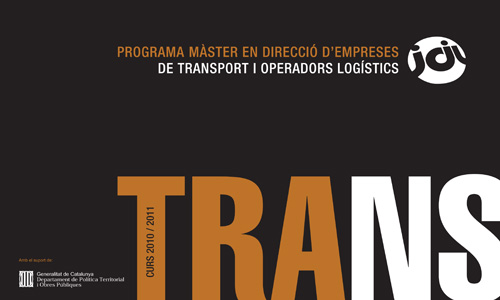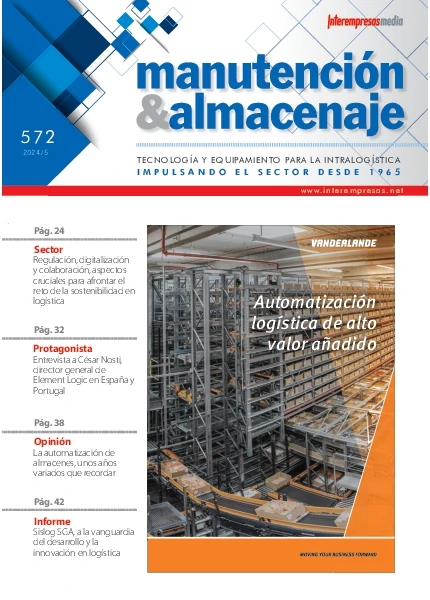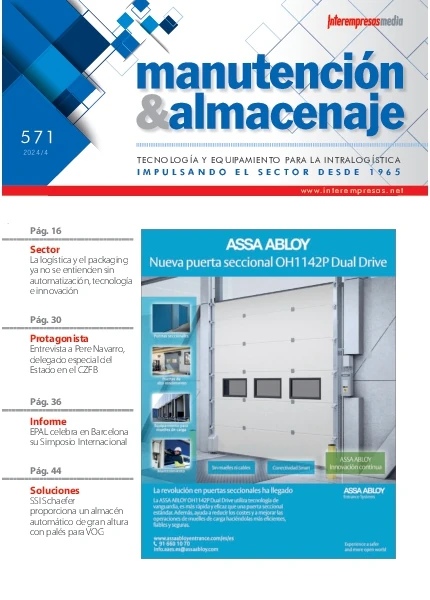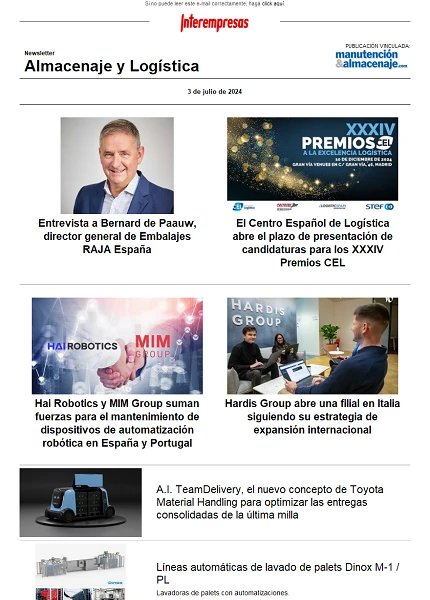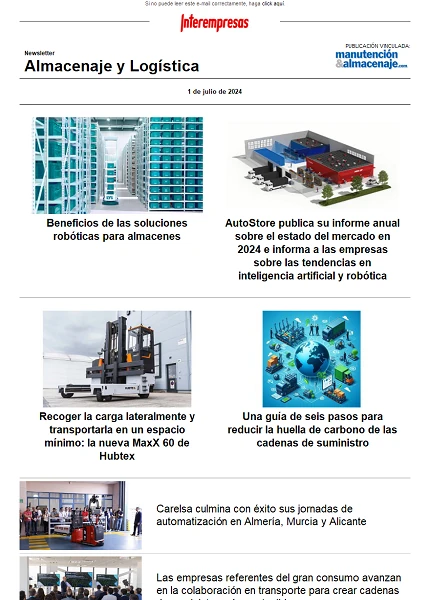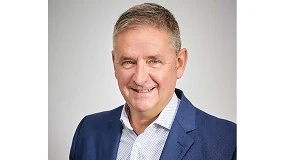Key to run a 'build' transparency, trust and cooperation,
November 24, 2010
Logistics has become a factor in generating value that companies have increasingly taken into account. In this sense, the outsourcing offers the possibility to delegate certain activities to other actors capable of making this same best activity, either by price or service. The ICIL Foundation, within the framework of its activities of dissemination on innovative topics and interest for logistics professionals, organized the Conference 'The ' tenders', in the relations between shippers and logistics operators' with the support of the General direction of the terrestrial transport of the Generalitat de Catalunya.
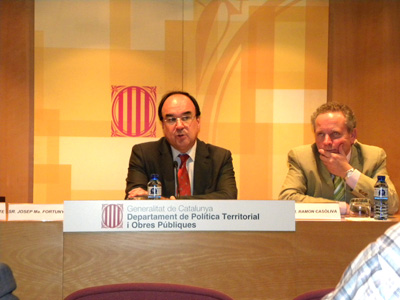
Josep Maria Fortuny, Assistant Director-general of management and inspection of the Directorate-General, was in charge of welcoming those attending the event and stressed the interest of the organizing institutions in dealing with the topics that interest may have for the sector and "open the debate and reflection" on them. Fortuny also remarked the novelty in the area occupied by the Conference, little Treaty in comparison with other more actions may "such as infrastructure or common themes" as the specific of the supply chain, that of recurrently occupy the attention of the Foundation.
RTF-RFI
A 'Request For Tender', commonly abbreviated as RTF or 'aim' originated in the sector of public works as an open order for products and services. In the private sector, particularly in the logistics, is an invitation structured suppliers for the supply of products or services. It is basically an open invitation to suppliers to respond to a defined need which will be delivered to a few selected potential suppliers. The RTF is often require information collected previously in an RFI (request for information). This usually will cover not only the requirements of the product and service, but it also requested information on the suitability of the business.
Saving of cost or market prospecting
In the form of round table, the Conference, moderated by José Luis Vidal, director of logistics of transport Ochoa and the ICIL Sectorial Committee of logistic operators Coordinator, was the intervention of Bernat Martín, Chief Operating Officer of Eurofred and Jordi Motjé, managing partner of Miebach Logística, representing shippers, and Santiago de Castro, a delegate in Catalonia of the Logistics Careers group and Xavier Juncosa, director-general of DSV Solutions Spain, as representatives in the Bureau of logistics operators.
In the speeches of the speakers was conducted a review of the evolution of the 'tender' in recent years. Analysed the aspects of content, as well as the problems posed, both from the point of view of porters and operators.
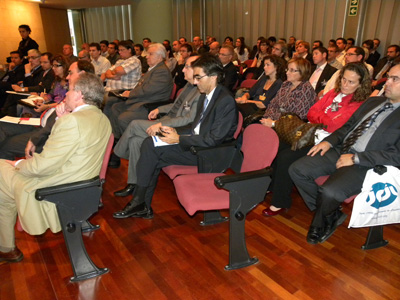
José Luis Vidal asked the Chargers present what motives usually had to convene a 'tender'. A change of operational, whether product or country, was one of the reasons that stated Bernat Martín de Eurofred group, although the main reason that reference was made the director of operations of the business group was the completion of contract with their providers of logistics services. "What you are looking for basically is reduce costs and to maintain a standard of services suited to the clients that require it."
For its part, Jordi Motjé said that his company, Miebach, to provide services consultancy and engineering, have a privileged view of the 'build', understanding both the requirements of its customers and the difficulties of the logistics operators. Motjé echoes of a study that your company every two years. According to this report, the main reason to convene a 'tender' is to reduce costs and more in times of crisis. The next in the ranking is the concentration of the 'core business' of business processes that belong to the same company. Another studied reason is to avoid making investments "because many times the companies prefer to invest in new stores that in a new warehouse". After other reasons such as flexible or variable costs, the desire to improve the logistic service contained in the last place of the classification. According to Motjé, "it is symptomatic that it the last cause of the ranking." "That means that often firms consider that they have a good level of service and that a logistics operator will not do it better".
From the other side of the 'build', the operators are the reasons for your request in a different way. Xavier Juncosa, DSV, distinguished two main reasons for convening a 'tender'. On the one hand, a company that manages its own logistics and decided to outsource to reduce costs. Juncosa stressed that this step is "a cultural change within a company and for the logistics operator means a higher wear that other cases be able to see the potential client the solution to their problems is to outsource your logistics". On the other hand, in a company is already externalized logistics, when it launches a 'tender' seeking possibly a change of operator, but it is also a way to see how the market is, if the service of your operator fit with what they offer other, "by what becomes a tool of negotiation with your current operator: I want to save me the cost of a change of operator and seek an alternative offer to negotiate with my operator".
For his part, Santiago de Castro agreed with Xavier Juncosa in differentiate between "those who want to simply information to see if they are in line with the costs of the market and those who are really looking for an operator to have a pact". The delegate in Catalonia of group races also added that his company felt every call as an opportunity to take advantage of.
The still room for improvement and success factors
When asked what she must have a 'build' to ensure its success, all the participants at the table agreed that accurate and transparent information exchange is essential to come to fruition in such agreements.
Martin Bernat warned that a 'build' "you can go wrong by not knowing how to provide all the data;" "it must be very rigorous with data". There are other reasons indicated Martín by which these contracts have not worked: lack of information or information wrong, lack of experience, not knowing how to standardize the service long enough, etc. "sometimes not have reached agreement with the operator to define well what is the service that we need and what changes there have been during the life of the '""tender", something that has damaged our relationship ". Martin Bernat also lamented that when an agreement of this type does not work, that just being damaged in short is the client that receives the service.
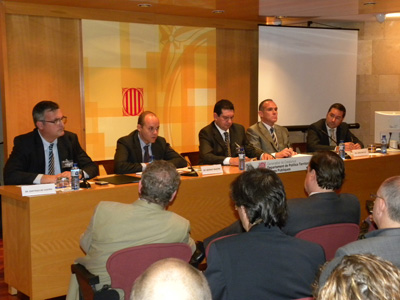
Santiago de Castro added that the bad experiences pass often promises that are unable to meet. "There are companies with commercial departments more powerful than their departments of operations", referring to that many times a Department can not develop all what has been agreed in the 'build' on the other by lack of operational. It is therefore increasingly apparent in the logistics operators to become service companies with a high technological component, circumstance that requires them to have continuous training. In this regard, it stressed the importance of initiatives such as the master and the ICIL postgraduate courses of Castro. Delegate Catalonia racing also noted the growing trend to specialization of logistic operators seeking thus to differentiate themselves by quality of service "because it is not the same consumption than the aluminium logistics." "Specialise is the easiest way to end up with a good connection and some good compromises that are met."
For its part, Xavier Juncosa summed up the keys to success in three values: transparent exchange of information, "although even exist this Exchange is difficult to know everything because not even the customer knows what happens within your logistics," confidence, "following the philosophy of the 'partnership'" and cooperation of equals. Also, Juncosa added that when things don't work as they should be "how easy is blame the operator search 'bonus malus' which had been agreed in the contract" instead of seeking common solutions to the problem, because the logistics operator"it is an integral part of the customer".
More negotiation and more collaboration
All participants stressed the importance of the definition of the service that is required from the beginning to avoid problems. For this reason, it is preferable to devote more time to the parameterization of the processes and the establishment of the mechanisms of control than having to redefine them later for not being properly defined.
For Xavier Juncosa, once decided the logistics operator to outsource, in which all energies should be used is in the definition of the contract. To the director-general of DSV Solutions Spain is essential to stipulate review clauses: "If the contract begins on day 1, day 90 should be checked to verify that all the clauses remain correct, and must be back to do the 180 day." It should be stipulated intervals in all the operational because it mutates in the customer's business and therefore the logistical operation also mutates because the market demands the same product in a different way. Where you have to wear down efforts is in the drafting of the contract so that while it lasts 'tender' not us desgastemos nothing more. "Better be two months succinct contract that sign it fast and then meet with surprises".
A contract can even incorporate variables such as for example the improvement of productivity. At a point in the debate, Martin Bernat said that after the logical adaptation of the operator with your customer's business, that may last approximately a year in contracts for 3 to 5 years, and once you have controlled operationsWe must find a way to pass to the client upgrades received by the operator. According to Juncosa, the solution is to reflect this in the contract, by providing measurements of continuous improvement to share these benefits. Xavier Juncosa gave the example of automotive companies that contract require an improvement in the productivity of 4%.
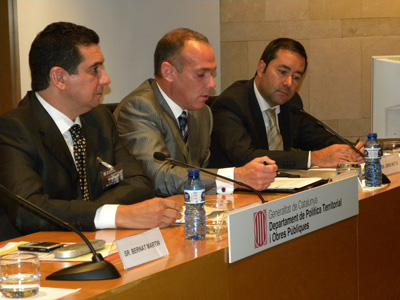
In this regard, be remarked that the figure of a consultant or external consultant can be highly recommended as that from his experience can recommend solutions or approaches that accelerate the entire process avoiding recurring errors. Jordi Motjé, which belongs to a logistics consulting, precisely stressed the need to compare the offers that are really comparable. "We are buying a service that is difficult to pricing and it is necessary to see what added values offered by each company: corporate use of continuous improvement, flexibility in their ability to change from one day to another procedure or add more personal", etc. "." An added value that increasingly takes into account, according to Santiago Castro, is the flow of information, that is, a powerful software and a good web page from where the client can control time real their goods from home.
For this reason, these values can be definitive for the success of the process 'tender' and as noted in the day, search only price in an operator may be wrong. As concluded Jordi Motjé: "A company can believe is very important because it represents 20% of the turnover of its logistics operator, but in fact, he is moving 100% of their goods." Once an operator has entered into a company, the cost of change it is very large. "We must ensure that we reach out to be a success, and therefore must begin with the right foot tarificando correctly in the contract."
Sectoral Committee of logistics operators
The Conference also served to present the new edition of the master's of management of transport and logistics operators which boasts what is offered in special advantageous conditions for students with the support of the General direction of the terrestrial transport of the Generalitat de Catalunya in Catalonia. Ramon Casòliva, project manager of the ICIL Foundation and he introduced the Act on behalf of the same, also recalled that since the Foundation is intended to solve all the needs of companies and professionals in the logistics field, for example from the area of 'Logistics support to companies' (ALE) it can provide any advice to companies wishing to promote advanced logistics solutions, encouraging those present to go to the services of the Foundation to know all the possibilities that this institution can offer to companies and professionals.
The Conference was part of activities that is promoting the ICIL Sectorial Committee of logistic operators. The creation of sectoral committees within the ICIL responds to a strategic plan of the foundation that brings together a number of professionals of different companies "to share, discuss and analyse the problems and concerns that allow the improvement of logistics in each of the sectors", in the words of Ramon Casòliva. The representative of the ICIL Foundation also said that as each of these committees draw up projects and work, the Foundation give them through several media "and will try to that they bring in the whole of the sector".
The sectoral Committee of logistic operators is coordinated by José Luis Vidal, director of logistics of transport Ochoa and they make up: John M. Manzanedo, Managing Director of Logisfashion; Rafael López de Zamora, Technical Services & Purchasing director of CEVA Logistics; Mary S. Perez Abad, Director of DB Schenker Logistics; Cristina Vallmitjana, responsible for consulting of Districenter; Victor Lopez, national director of Rhenus logistics; Ignasi Ferrándiz i Vedia, regional director of Barcelona's Luis Simóes; Alberto Sancho Molins, director of exploitation of Logifrio; Juan Carlos Sánchez Bolaños, Deputy CEO at Integra 2; Castro Santiago Llobet, delegated zone Catalonia of the storage Division and distribution of the careers group; and Xavier Juncosa, director of logistics of DSV.
